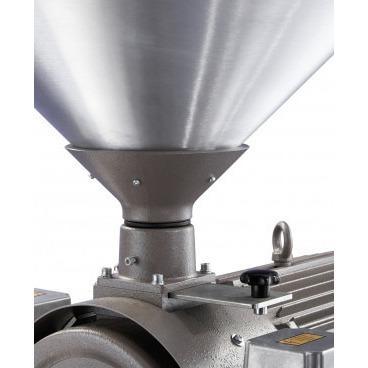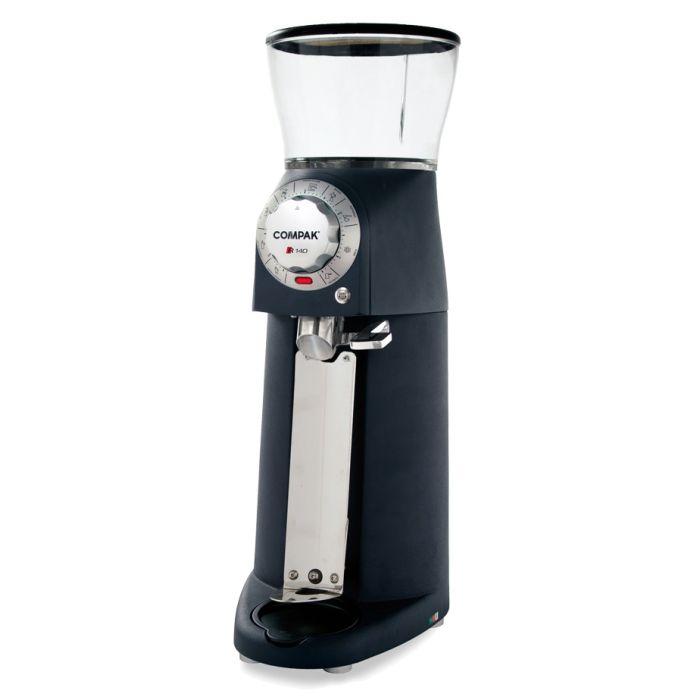Increase Productivity with an Industrial Coffee Grinder in Your Establishment
Increase Productivity with an Industrial Coffee Grinder in Your Establishment
Blog Article
Just How to Select the Perfect Industrial Coffee Grinder for Your Service
Choosing the ideal commercial coffee grinder for your organization is a diverse choice that needs mindful consideration of numerous important factors. It is important to assess your details grinding demands, consisting of the volume of coffee refined and the desired work uniformity, as these elements straight impact flavor and consumer fulfillment. In addition, comprehending the numerous sorts of mills readily available can considerably affect your operational effectiveness. As you browse these factors to consider, one should likewise consider the implications of budget plan and upkeep. What various other factors could make or break your option?
Assess Your Grinding Requirements
When picking a commercial coffee mill, one have to initially assess their grinding needs to guarantee ideal performance and consistency. This initial assessment includes recognizing the quantity of coffee to be processed daily, along with the wanted work dimension for numerous developing methods. A high-capacity mill may be essential for services serving big quantities of coffee, while smaller procedures might locate a more compact model enough.
Furthermore, it is necessary to consider the sorts of coffee beans being made use of, as various beans may require specific grinding strategies to achieve the very best taste account. Oily beans could require a grinder made to take care of such attributes without clumping or overheating.
Specialized coffee businesses commonly require accurate grind dimensions to boost extraction and flavor, making it crucial to pick a mill that can deliver uniform outcomes. Reviewing the available space and electrical demands will certainly aid in selecting a grinder that fits perfectly right into your functional operations.
Understand Mill Types
Understanding the various kinds of industrial coffee grinders is vital for making an educated selection that meets particular operational demands. There are mostly 2 classifications of mills: blade mills and burr mills.
Blade mills use spinning blades to slice the coffee beans, leading to an inconsistent grind size - Industrial Coffee Grinder. While they may be much more affordable, they are often not suitable for commercial applications where precision is essential
On the other hand, burr grinders give a more uniform work by squashing the beans in between 2 surfaces. They can be further categorized right into level burr and cone-shaped burr grinders. Flat burr grinders provide a consistent grind dimension and are typically preferred for coffee prep work, while cone-shaped burr grinders are versatile and can deal with a series of mixture approaches, from coffee to French press.
When choosing a grinder, think about the specific needs of your business, consisting of desired work uniformity, manufacturing volume, and the types of coffee beverages you intend to provide - Industrial Coffee Grinder. Each mill type has its benefits and restrictions, so understanding these subtleties allows notified decision-making that aligns with functional goals
Evaluate Work Size Uniformity
Accomplishing work size uniformity is crucial for creating top quality coffee, as variants in bit dimension can substantially impact removal and taste. When selecting an industrial coffee mill, it is vital to assess just how well the device keeps uniformity in grind dimension across various sets. Inconsistent work sizes can cause uneven extraction, causing a cup that may taste extremely bitter or weak.
To analyze grind size uniformity, consider Extra resources grinders with functions such as flexible grind settings and high-grade burrs. Burr grinders, specifically, excel in creating consistent fragment sizes compared to blade grinders. The product and form of the burrs play a vital function, with stainless-steel and ceramic alternatives offering sturdiness and accuracy.

Consider Production Capacity
In the fast-paced world of coffee production, considering production capacity is critical for companies aiming to meet demand without sacrificing quality. The production capacity of an industrial coffee mill straight affects a business's capability to meet orders effectively, handle stock, and reply to varying market trends.
When evaluating production ability, it is vital to evaluate the mill's result rate, usually determined in pounds per hour. This dimension needs to line up with your service's projected sales quantity and development targets. As an example, a coffee shop with a high turnover may require a grinder that can process numerous hundred extra pounds daily, while a smaller sized procedure may be enough with a reduced ability version.
Additionally, think about the kind of coffee being refined. Various beans and blends may influence grinding speed and efficiency, requiring a grinder efficient in dealing with varied production demands. It's likewise worth considering the grinder's capacity to maintain regular quality under high result conditions, as any type of fluctuations can impact the end product.
Inevitably, selecting a grinder that matches your organization's production ability will ensure you continue to be competitive and receptive to client expectations.

Budget Plan and Maintenance Variables
When evaluating the best commercial coffee maintenance, grinder and budget plan variables play a significant function in the general decision-making procedure,. A first financial investment in a top quality grinder can produce long-lasting advantages, yet it's vital to establish a clear budget that lines up with your service's functional requirements. Take into consideration both the acquisition rate and potential operational costs, such as energy consumption and replacement components.
Upkeep is an additional critical aspect that can impact your budget. Industrial coffee mills call for routine upkeep to ensure ideal performance and durability. Examine reference the maker's suggestions for upkeep, consisting of cleansing timetables and components replacement, as these will affect lasting functional expenses. Furthermore, consider the availability of solution and assistance, as trustworthy help can alleviate downtime and repair work expenses.

Buying Recommended Reading a grinder that is resilient yet very easy to preserve can conserve money with time. While lower-priced options might be tempting, they might sustain higher upkeep expenses and lowered efficiency. Inevitably, balancing preliminary costs with long-lasting upkeep and operational effectiveness will certainly direct you to the ideal choice for your service's coffee grinding needs.
Final Thought
Selecting the perfect industrial coffee grinder necessitates an extensive examination of grinding requirements, mill types, grind size consistency, production capacity, and budgetary considerations. An appropriate mill not just improves the high quality of the coffee generated but likewise adds to the overall success and earnings of the venture.
Specialty coffee businesses frequently demand specific grind sizes to improve extraction and flavor, making it crucial to select a grinder that can supply consistent results. Flat burr mills supply a constant grind size and are typically preferred for coffee preparation, while conical burr mills are flexible and can deal with a range of mixture techniques, from espresso to French press.
When picking a commercial coffee grinder, it is crucial to review exactly how well the machine keeps uniformity in grind size throughout different batches. Burr mills, in particular, succeed in creating uniform fragment sizes contrasted to blade grinders.Picking the excellent industrial coffee mill requires a comprehensive analysis of grinding requirements, grinder types, grind dimension consistency, manufacturing capability, and financial considerations.
Report this page